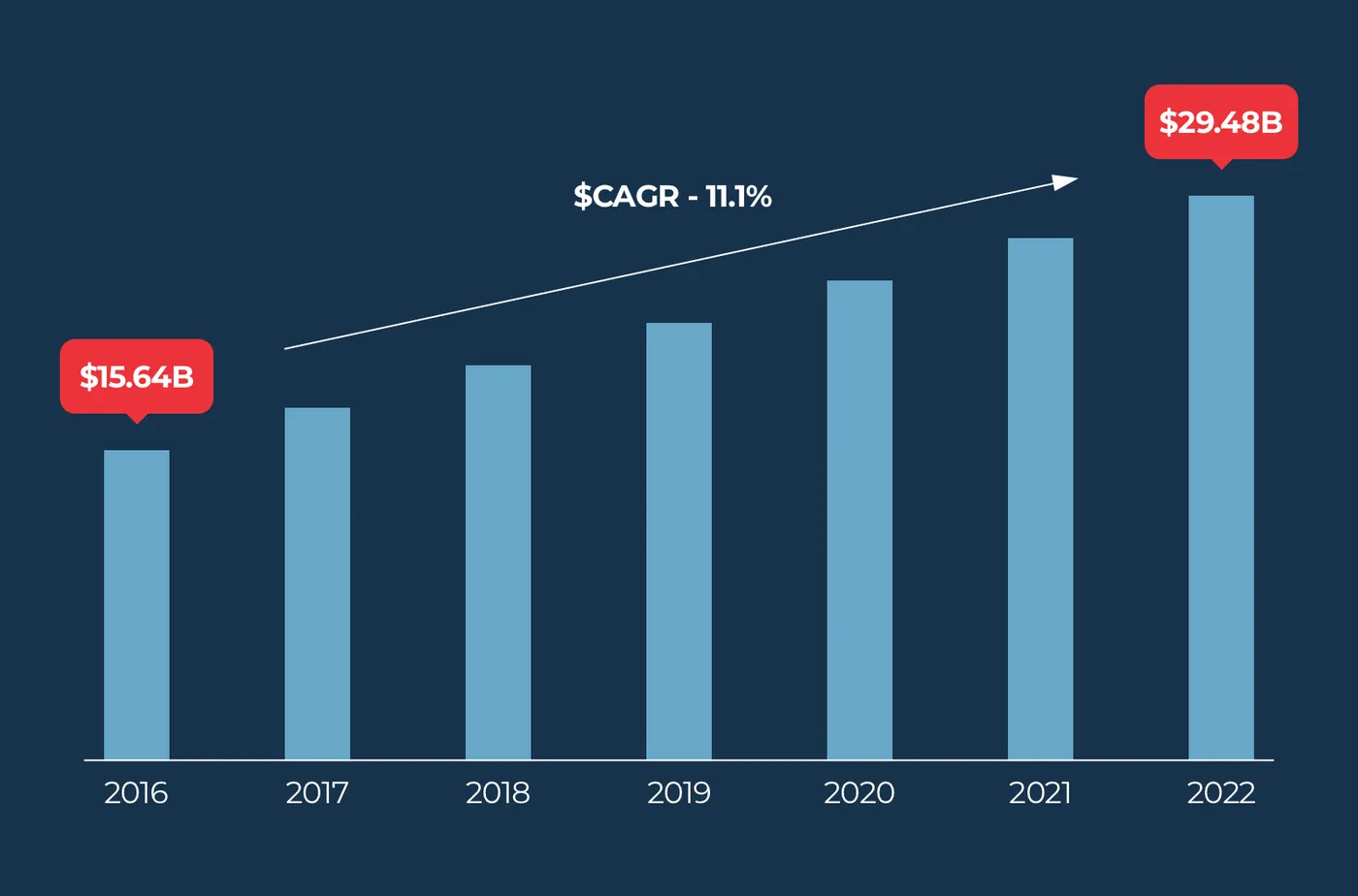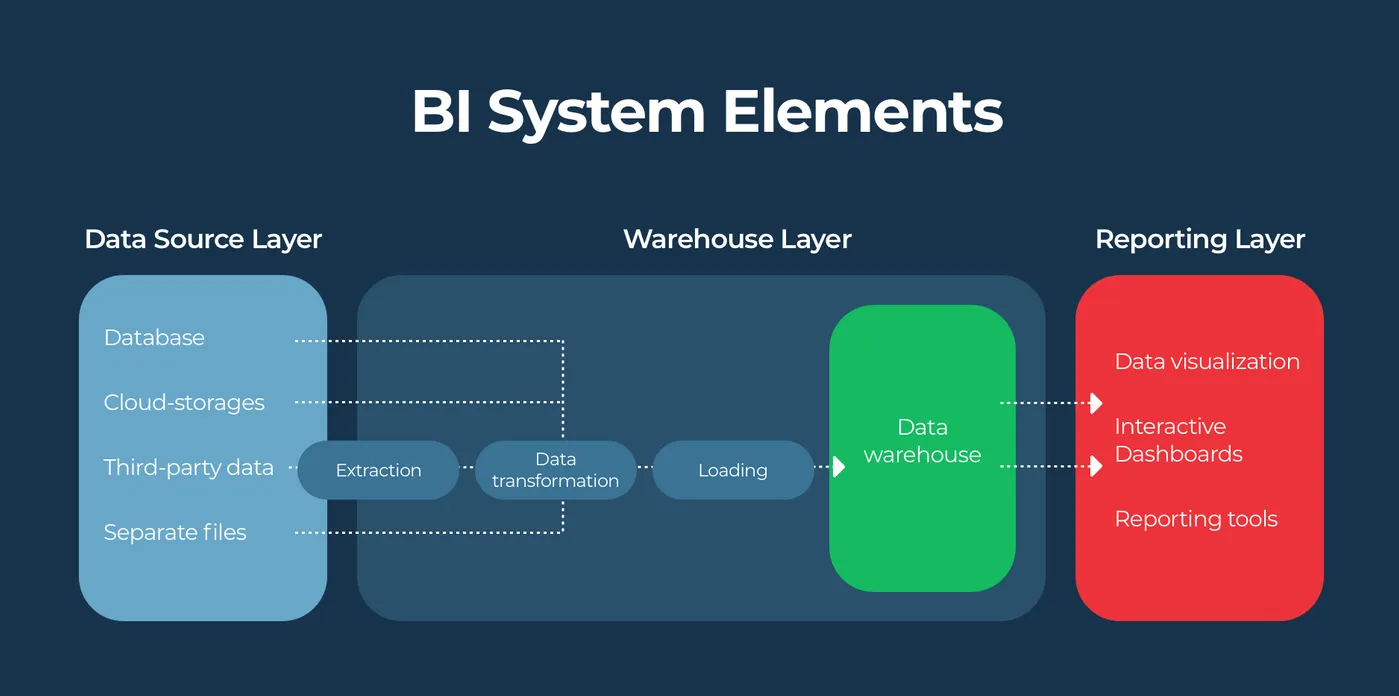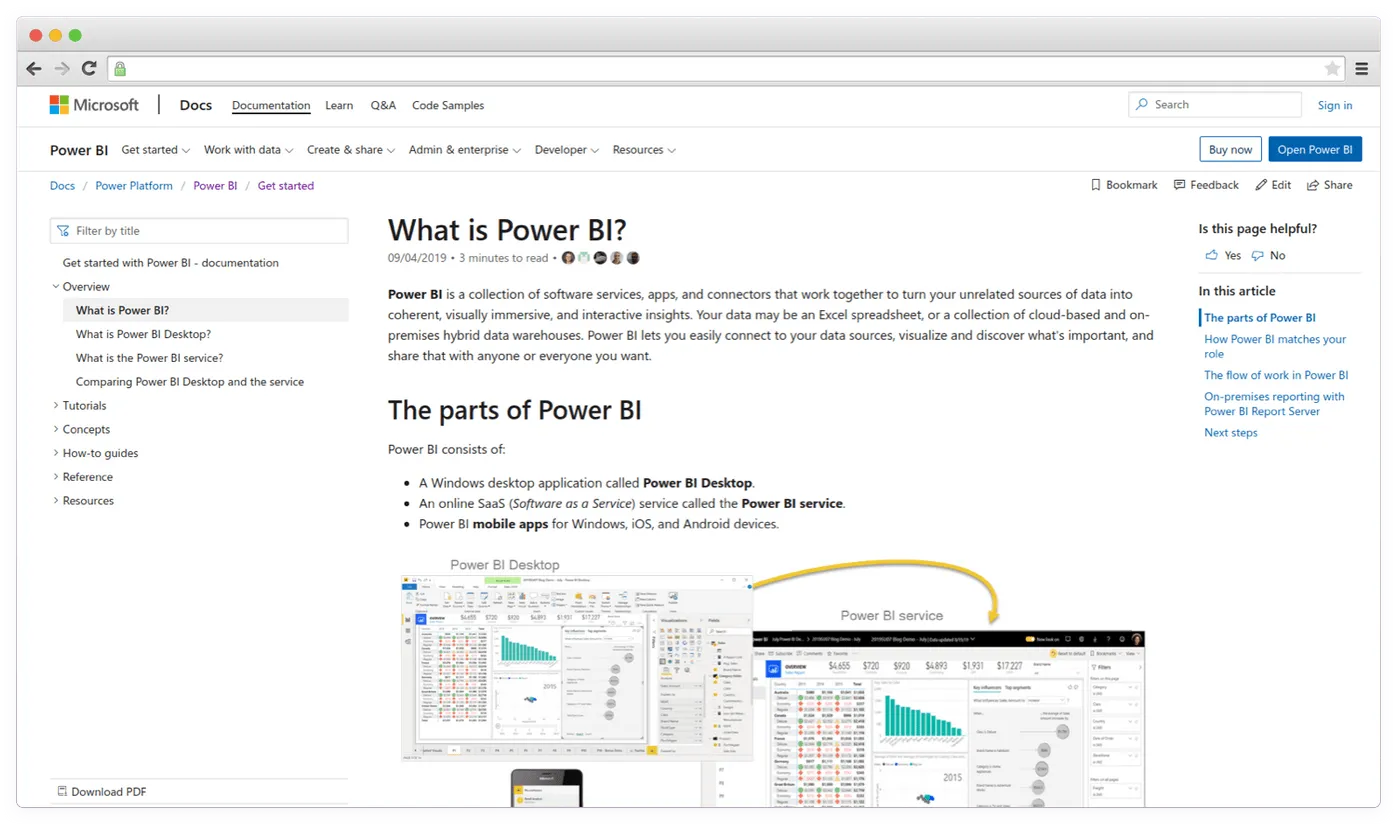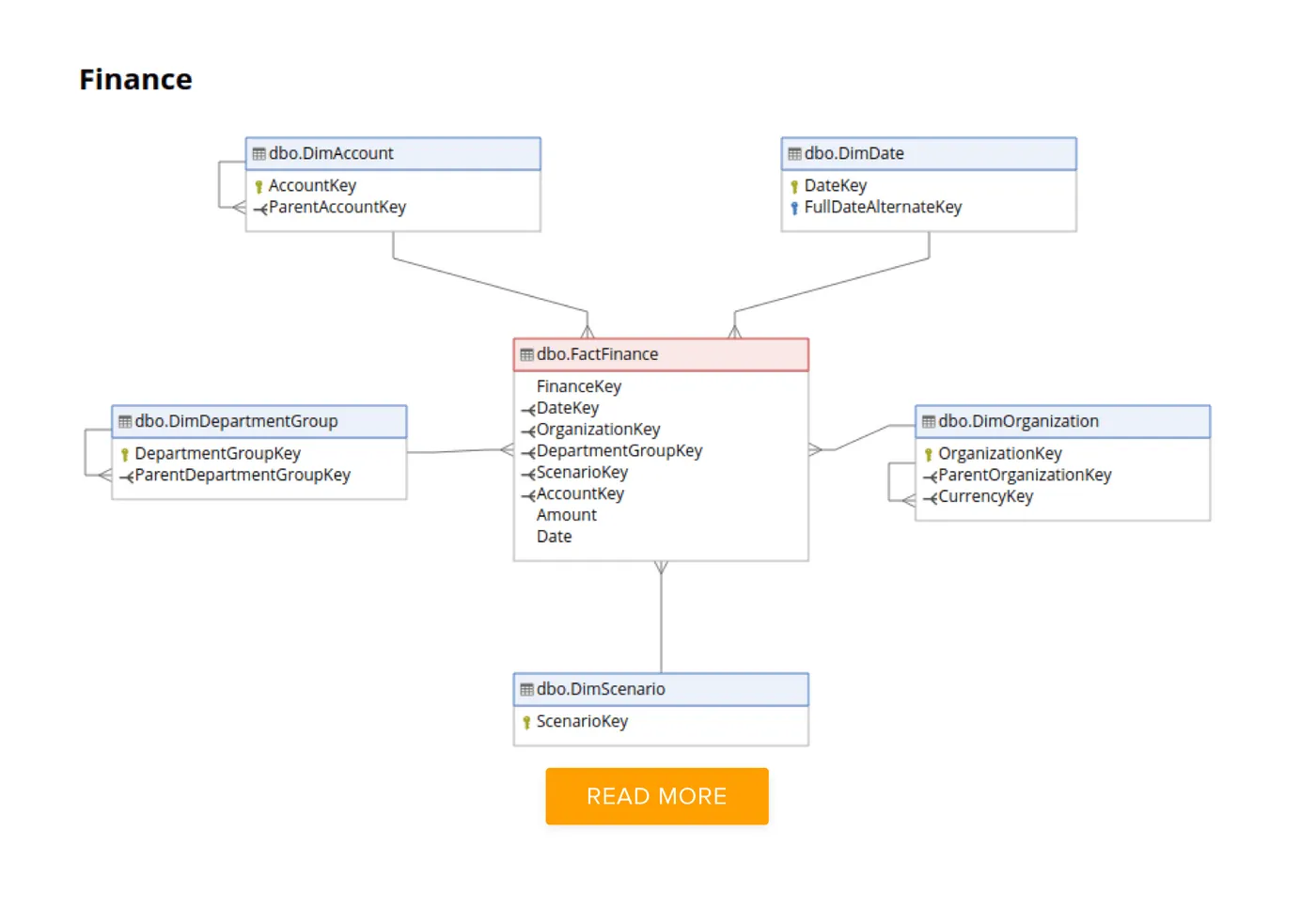What Is a BI Developer: Skills, Responsibilities, and When to Hire
Updated 25 Oct 2022
9 Min
3367 Views
Data means a lot these days. Businesses across the globe are trying to transform the information they get from customers and digital channels into valuable insights increasing revenue.
Business Intelligence developers are out there to help you handle that process. In simple words, a BI developer is an employee whose main task is to make data understandable for making business decisions.
This profession has become very popular and demanded over the last few years. And it seems like its popularity won’t go down in the future. According to Stratistics MRC, the global BI market is expected to grow from $15B in 2016 to $29B by 2022. This means that the demand for BI developers will be only rising.

Business Intelligence market growth.
Let’s dive deeper and find out who are BI developers, what is the main role of BI developers, and what skills they should have to bring value to a company.
What Is a BI Developer?
The main role of BI developers is to develop and maintain BI interfaces that help businesses get a better grasp of their data. To make it possible, BI developers build dashboards, data modeling and reporting tools. They can access the database and convert information into various graphs, spreadsheets, reports, and other ways of data visualization. On-demand business intelligence for supply chain, e-commerce, healthcare, and many other domains has become a path of digitalization as well as workflow optimization opportunity.
To clearly understand BI developer roles and responsibilities, you need to understand what Business Intelligence actually is. Let's break it down into components and see the place BI developers take in the whole Business Intelligence chain.
The Main Components of Business Intelligence
Business Intelligence is divided into three parts that are interconnected. Each of them is typically maintained by different specialists.
Data source layer This layer keeps all business data in one place. It can be various cloud storages (especially required when you deploy business intelligence in the cloud), databases, and different files filled with vital business information. ETL developers are responsible for this layer. This layer is crucial because the next layers are connected to it.
Warehouse layer Within this layer, all data is transformed for further collection in one database. The main reason for this process is to standardize all data, so users could query and access it from one place.
Warehouse layer is an area of concern for ETL developers, database developers, data analysts and engineers.
Reporting layer This is the layer where all warehouse data is kept and visualized. In other words, it’s a BI interface itself. While both data source and warehouse layers are under the responsibility of ETL developers, the reporting layer is where BI developers start to work.

Business Intelligence system scheme.
Now that you’re aware of all zones of Business Intelligence, it’s time to discuss BI developer responsibilities.
BI Developer Responsibilities
Developing a BI interface requires a clear understanding of the business domain. That’s because various businesses require different approaches to data visualization. Being aware of such things, BI developers can build well-thought solutions.
Defining Business Requirements for a BI Interface
Types of a Bi interface and its appearance are related to the business domain and can vary from company to company. For its proper execution, BI developers have to define what data must be represented and what representation format will be the best for end-users.
Let’s imagine that a BI developer has two projects that must be established, and these projects are radically different.
Healthcare. BI platform for a healthcare company that collects statistics from annual physical exams. The amount of data is enormous due to various health aspects checked during the examination, different age groups, demographic differences, and so on. The requirements for data presentation are high. All demographic groups must be comparable by various health parameters, and the range of parameters is wide. Moreover, every group must be accessible independently for more in-depth analysis.
E-commerce. BI platform for e-commerce designed to increase the efficiency of customer support. To do so, all analytics on the website must be collected in convenient reports for managers. Furthermore, various e-commerce indexes like profit/loss values and conversion rates must be visible and easy-to-compare for multiple time periods.
This is a brief explanation of how business requirements should be set for BI tools. As you can see, the requirements differ from each other, but the final result will be the same — a BI interface.
Designation of Technical Requirements
When business requirements are set and documented, the next step is to transform them into technical requirements that’ll be handy for further development.
The BI developer role in this process is simple. BI developers decide what type of visualization is the most suitable for your business domain. It’s all about various spreadsheets, dashboards, and how end-users will interact with them all. A user-friendly interface is the number one goal for a BI developer.
These requirements will be transferred to the development team and transformed into technical tasks. Control over the development process is also a part of the BI developers’ job.
Participation in Development
BI developers can participate in the development process as a part of the team. They’re responsible for decision-making, Quality Assurance testing, and maintenance throughout the development.
Reporting Requirements
All database intelligence is presented in the form of various models. Within these models, there are lots of different objects with specific relations between them. Relations are responsible for the ways how all data can be queried and shown to end-users.
While establishing models is a task of ETL developers, BI developers are responsible for proper relations between objects.
Involvement in Data Warehouse Development
BI developers can participate in the data warehouse/business intelligence development as a part of the ETL development team. It’s often the case even though the architecture of the data warehouse won’t affect the data reporting itself.
Data Documentation
BI developers can also be involved in the documentation of data structure for a warehouse storage. Data documentation describes all the data used in the project. With this documentation, you’ll be able to find various codebooks and data dictionaries. They explain data variables, algorithms, relations and calculations of a project.
This documentation is very useful because it can positively impact on the development of reporting tools. It’d be easier for a BI developer to build a BI interface if all data is properly explained and structured in one clear documentation.
Dataebo made a perfect example of data documentation based on Microsoft AdventureWorks.
Creation of Technical Documentation
Without technical documentation and proper onboarding, your end-users won’t understand how BI interfaces work. The main goal of BI developers is to write an ultimate guide to using a freshly created interface and make this guide as clear as possible.
A good example of well-structured and easy-to-read tech documentation is a Power BI Documentation from Microsoft.

Technical documentation example.
BI Developer Skills
The skillset of BI developers can vary from project to project. That’s why I’m going to guide you through the full list of Business Intelligence developer skills to prepare you for any situation.
Proper Tech Background
To create a proper Business Intelligence tool from scratch, BI developers must have a solid knowledge of various programming languages:
- Python
- JavaScript
- TypeScript
Add to this a good understanding of warehouse structure, data formatting, and extensive experience with data visualization libraries (D3.js, Matplotlib, RGL).
Wondering what is Python? Learn more about it and discover 5 leading companies that use Python.
Experience With BI Tools
For the correct implementation and further use of pre-made BI tools, BI developers must know their core and fully understand their tech stack. The most popular pre-made solutions in BI are Apache Superset, Hadoop, and QuickSight.
Solid Database Background
Without this skill, BI developers can’t interact with databases and build a working BI interface. All databases are related to SQL and non-SQL queries. They require constant work with data models, relations, and so on.
Business Analysis Skills
For correct designation and structuring of business and software requirements to BI interface, it’s vital to analyze all business data correctly. Besides, it’d be hard to participate in data warehouse development without this skill.
Testing and Debugging Experience
BI developer role in testing and debugging of BI interfaces is pretty significant. Before introducing the final product to the customer, it’s important to make sure that BI interface is bug-free and every piece of information is displayed correctly.
Want to learn more about testing methods? Check out our Manual vs Automation Testing article and discover which method is superior.
Strong Software Development Skills
These BI developer skills can be pretty vast due to the multiplatform nature of modern BI systems. BI interface can be launched on mobile devices, desktop apps or web browsers. That’s why strong software development knowledge is a must.
Putting All Skills Together
Let’s sum up the skills a BI developer should have to build and deliver a good interface for a business:
- Tech knowledge (Python, JavaScript, TypeScript)
- Experience with data visualization libraries (D3.js, Matplotlib, RGL)
- Knowledge of ready-made BI tools (Apache Superset, Hadoop, QuickSight)
- Background with databases (SQL)
- Have solid business analysis skills
- Testing and debugging experience
What Benefits BI Developers Bring to Business
The main benefit of having a BI developer on the team is that all business decisions become visible and easy to analyze thanks to a fine tuned flow of data.
Decided to upgrade your business? Find out how business can grow using neural networks.
When a business owner can see business stats, it’s easier to plan on further moves and build various business development strategies that can lead to prosperity. BI developer is an important bridge between data and a business.
When to Hire BI Developer?
It’d be wise to think about hiring a BI Developer when there’s a strong business need in proper data presentation. All business data becomes useless if there are no solutions to analyze it and build the right business decisions based on it.
BI developers are there to convert all data into a visible form that’d be understandable from the business perspective The main goal of BI developers is to build the right data visualization tool that’ll help a company process and display their data easily and efficiently.
BI developer works with Business Intelligence and makes all business data visible for business owners. The BI developer's main responsibility is to create a BI interface that will present all business data to business owners.
BI developer creates an ultimate solution for business data visualization. The main goal is to make user-friendly business intelligence interface that will visualize all business data to business owner.
BI developer must know various programming languages like Python, JavaScript, TypeScript to build BI interface from scratch. Moreover, experience with different data visualization libraries (D3.js, Matplotlib, RGL) and SQL databases is a must. Knowledge of ready-made BI tools with solid analytical and debugging skills is also vital.
The range of BI developers' responsibilities is pretty vast and can vary from project to project. But the main responsibilities are:
- Defining business requirements for a BI Interface
- Designation of technical requirements
- Participation in development
- Requirements development for reporting
- Involvement in Data Warehouse Development
- Writing of technical documentation
The main role of BI developer is to develop powerful BI interfaces that will visualize all business data and help to analyze it for better business development.
When you need a proper presentation for your business data, and it must be converted in the visible and comparable form, it would be wise to hire a BI developer.

Evgeniy Altynpara is a CTO and member of the Forbes Councils’ community of tech professionals. He is an expert in software development and technological entrepreneurship and has 10+years of experience in digital transformation consulting in Healthcare, FinTech, Supply Chain and Logistics
Give us your impressions about this article
Give us your impressions about this article
